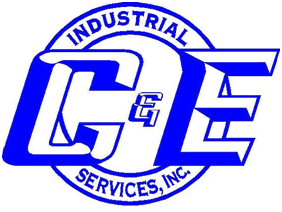Industrial applications require a very specific type of attention. There’s a lot on the line when we talk about anything in the industrial sector—as it’s usually directly involved in vital aspects of day-to-day operations. Insulation is a highly necessary material that receives little recognition for its contribution to large-scale and small-scale operations. At C&E, we appreciate insulation and find that people outside of the industry might find it interesting to note the vast spectrum in materials and grades involved in insulating industrial infrastructure or materials. So what are the most common types of industrial insulation?
How does this unsung hero of the industrial sector play a role behind the scenes? Learn about the many varieties of insulation that the commercial and industrial sector uses to protect its hardware.
Anatomy of a Commercial Property and Insulation Requirements
Any commercial structure will involve many working components and will usually include a complex network of pipes, tubing, HVAC systems, ductwork, storage tanks, or fluid lines. So much of this infrastructure is responsible for:
- Maintaining comfort temperature levels indoors: Insulation is designed with the intended purpose of preventing heated air or cooled air from escaping.
- Reducing unnecessary waste of energy and reducing energy costs.
- Extends the life of appliances and other components such as HVAC or piping.
Common Types of Insulation for Commercial Building — Find Your Type
Every commercial building will have different needs depending on the type of structure, materials, and the type of work performed within the facility. Every type of insulation has its pros and cons depending on the industrial application and the required needs. There are plenty of fish in the sea; that is, various material options. Finding the match made in heaven means being familiar with the different materials out there and how they function in different environments.
Some of the most widely seen insulation types include:
Fiberglass Blanket Insulation. (The reliable type) Many people are familiar with this type of insulation because of its reliability. If you wanted an insulation that was consistent, long-lasting, and wasn’t filled with surprises, a fiberglass blanket might be your match. It is called a blanket because the fiberglass is sandwiched in between two pieces of cardboard and comes in a variety of thicknesses, densities, and lengths.
Fiberglass Pipe Insulation. (The flexible type) This is not to say that fiberglass pipe insulation is not reliable because it is. It has a very specific function, however, and that is to insulate pipes and is often used in industrial, process, or power applications. So it is very driven and focused. It is very heavy, comes in one large piece, and withstands harsh conditions from 0 degrees to 1000 degrees Fahrenheit.
Rock Wool Pipe Insulations. (The hot-tempered type) This type of material (rock wool or mineral wool) is pipe coverings cut to precision. Their applications range but they do well in hot-tempered environments that reach up to 120 degrees to 1200 degrees Fahrenheit. If your scene is the high-temperature industrial processes such as power stations, power plants, or facilities with cold/hot water systems, this might be your match.
How are Insulation Types Rated?
You don’t want to judge a book by its cover. Not all piping materials are created equal for all functions. The industrial insulation industry, however, offers solutions for various applications. It targets specific needs and enhances material’s resistance depending on the demands and the surroundings. Usually, the efficacy and success of a piping insulation material is rated based on its thickness, density, water vapor resistance, and thermal conductivity.
The Key Functions of Pipe Insulation in Industrial Applications
In addition to HVAC, ductwork, and other important applications, the insulation of pipes in industrial plants, manufacturing plants, and other environments is essential for the maintenance and function of the facility.
The essential role of any pipe insulation is to provide a resistant barrier that stands between the pipe and the environment. This outermost layer is the quiet hero—rarely getting the recognition it deserves for its role in overall efficiency, increased condensation, and prevention of freezing.
Some of the primary functions of these essential materials include:
- The protection of piping infrastructure through the control of water condensation. When pipes produce condensed water vapor, it leads to the corrosion of the material. Piping helps to prevent that.
- Prevention of freezing pipes in harsh environments or climates. When pipes are exposed to below-freezing temperatures, the simulation is there to slow down the process. If water inside of a pipe freezes, the water expands, and this means it might be a matter of time before that pipe cracks or bursts. Insulation made for freezing temperatures acts as a safeguard against that.
- Regulation of noise levels. Interestingly enough, many piping will have an undesired effect of creating noise, so what is called acoustic insulation is used to dampen that undesired noise from entering and disrupting activities within the building.
Explore Your Insulation Type with C&E Industrial
Depending on the size and type of building, your industrial insulation needs may vary. You want to find a material that keeps things running and makes your life easier. We’d love to work with you to figure out which insulation type is your match based on your needs, commercial property, material preferences, etc.
From utility installation to other industrial services like welding and plumbing, our team of industrial experts is here to take the call.
Don’t settle. Choose the right insulation match. Call C&E Industrial and learn more about what is right for you.



